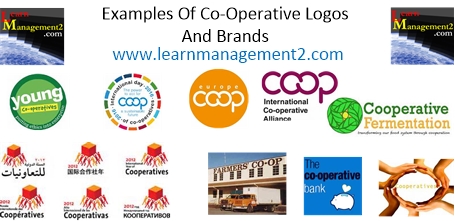Co-Operatives
Introduction
In 1844 28 weavers from Rochdale England set up the Rochdale Pioneers society to buy food and sell to its members at the same price that the food would be sold to shops. This is known as selling wholesale and enabled the weavers to combat the high food prices that had prompted them to set up their society. This type of society is known as a co-operative and allowed the members to buy food cheaper than that sold in the shops. It is estimated that by 1990 there were 80 co-operatives in existence. A Co-operative is a mutual organisation which means that it is owned by its members and does not have any shareholders. Profit made by the co-operative is distributed amongst the members (owners) of the co-operative through reinvesting back into the business.

Co-Operative Group
The Rochdale Pioneer Society grew into what is known today as the Co-operative group. The Co-operative group have a wide range of businesses including food, travel, pharmacies, legal services, banking, funerals, insurance and investments.
Industrial and Provident Societies Acts
In 1852 the first Industrial and Provident Societies Act was enacted in the UK . Since then further legislation concerning Co-Operatives has been enacted. Co-operatives are governed by the Industrial and Provident Societies Acts in the UK , Ireland and New Zealand . If an organisation registers under the Industrial and Provident Societies Act they are:
- granted legal status, and
- are protected by limited liability
Whilst being able to continue trading as a mutual organisation. To be able to register a society must prove that its activities are carried out to benefit the community.